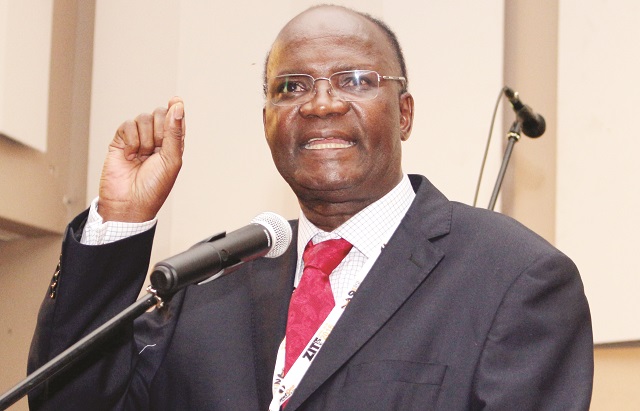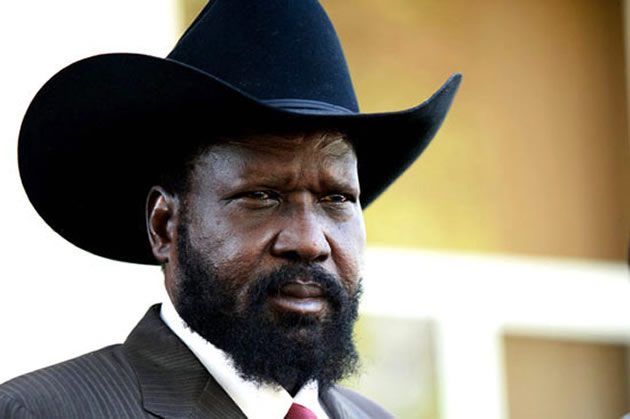‘Zanu-PF didn’t get Zimdef loot’

Harare Bureau
NOT a single cent of money allegedly siphoned from the Zimbabwe Manpower Development Fund (Zimdef) by Higher and Tertiary Education, Science and Technology Development Minister Professor Jonathan Moyo and his Deputy Dr Godfrey Gandawa went to Zanu-PF.
Investigations by the Zimbabwe Anti-Corruption Commission (ZACC) reveal that the money went to personal business.
Chairperson of the ZACC investigations committee, Commissioner Goodson Nguni, yesterday dismissed claims by Prof Moyo that the money had been used to fund Zanu-PF activities such as the One-Million Man March, the Women and Youth League meetings.
Speaking tongue-in-cheek as he addressed the media at ZACC offices in Harare yesterday, in the wake of allegations levelled against him by Prof Moyo, Commissioner Nguni said investigations by the commission revealed that all the money that was siphoned from Zimdef had been used for personal purposes by Prof Moyo, Dr Gandawa, Zimdef chief executive Fredrick Mandizvidza and Prof Moyo’s personal assistant, Mr Shephard Honzeri.
“The public has been bombarded with lies, half-truths and complete fabrication by persons who may face charges of fraud, abuse of office, money laundering arising out of violating the National Manpower Development Act,” said Commissioner Nguni.
“Zimdef finances, in terms of the Act, must only be used for manpower development. The trustee, who is the Minister of Higher and Tertiary Education, Science and Technology, is the only one entrusted with the funds generated and paid into Zimdef,” he said.
“But he must do so on the advice of the National Management Council. In this case, the National Management Council has not been aware of any financial expenditures by Zimdef.
“That means, we know what Zimdef was paid for, we know who asked for it and we know all the money that was paid out of that expenditure. We followed all the papers that were used to pay various people and we have the information.”
Commissioner Nguni said investigations revealed that all the money from Zimdef was used to offset personal loans, buy personal furniture and also deposited into the accounts of journalists.
He said the paper trail showed that money would be deposited into a Fuzzy Technologies bank account and then used to pay for various things including journalists.
He produced a bank statement which indicated that former Chronicle Editor Mduduzi Mathuthu received $2 500, while $50 000 was paid to a non-governmental organisation owned by private media journalists in Bulawayo.
Commissioner Nguni declined to reveal the name of the journalist from the private media who allegedly got $9 000.
“We have all the statements from Zimdef, from Fuzzy Technologies, a company owned by Dr Gandawa. No money from Zimdef benefited any political party. It is a lie. All monies that have been paid out have been traced to the personal benefit of Professor Moyo, Dr Gandawa, Mr Honzeri and Mr Mapute. No money was paid to any political party or to the benefit of any political party. The beneficiaries of all these monies that we would want to charge people for, are those people that I have mentioned,” he said.
“The monies from Zimdef was used to buy personal furniture, bicycles, tricycles but the documentation was forged to say that the money was for a computerisation programme.
“The money from Zimdef was used to offset loans obtained in personal capacity by Dr Gandawa. And he paid $70 000 to a loan in an account with Barclays. We have an RTGS that he wrote in his handwriting and signed,” said Commissioner Nguni.
He added: “Thousands of dollars were used to purchase goods for personal companies of Dr Gandawa and some business connections related to Dr Gandawa.
“We had sight of a bank statement of Dr Gandawa, we obtained them legally through a court order. They show that the only business transactions that are in Fuzzy Technologies account — Dr Gandawa’s account – are deposits from Zimdef, Great Zimbabwe University and Zimbabwe Open University. No other business deposits are there.
“We followed the purchases and drawdowns from that Fuzzy Technologies account, no political party benefited in any way.
“You people in the media have been writing that the Zimdef funds were used to fund the Million-Man March. I want to confirm today that we have followed all the payments, for which we are charging them, there is no money that was used to finance the Million Man March in this transaction where we seek to charge these people. For example, some of these payments happened in 2015. The Million Man March was 26 May 2016.” He said some of the transactions happened before the Women and Youth League meetings.
Commissioner Nguni said the Act only allowed the minister to direct Zimdef payment yet Dr Gandawa illegally performed the same responsibilities.
“The deputy minister has no authority whatsoever in terms of the Act to approve any payments by Zimdef. Yet we have instances where he was ordering Zimdef to buy a car for the minister and his PA. These are all payments that are irregular and not authorised by the Act.
“We also went into Gandawa’s personal account. In his personal account, that is where we discovered Zimdef money was put into Fuzzy Technologies and then they transferred $120 000 to Gandawa’s personal account. He then paid $70 000 towards a loan that he owed.
“These are people who are claiming that they used the money to fund Zanu-PF activities. It is a lie. They used it to fund themselves. Fuzzy Technologies is a company owned by Gandawa. I know who they paid and didn’t pay. There is no proof that money from Zimdef was used to fund any Zanu-PF activities,” said Commissioner Nguni.
He dismissed claims that officials from ZACC went to Zanu-PF headquarters during a Politburo meeting last week with the intention of arresting Prof Moyo. He said they only wanted to interview him since he had been refusing to appear before them to answer to the allegations raised.
Commissioner Nguni also dismissed claims that some commissioners had been bribed to block investigations into institutions such as the Civil Aviation Authority of Zimbabwe and AB Communications.
He said there was no way a commissioner could have been bribed when they were not investigating the two entities.
Commissioner Nguni also dismissed claims by Prof Moyo that he was behind the probe, saying investigations were only approved by the full commission. He also refuted claims that he was a convicted fraudster in South Africa saying if it were true, he would not have qualified to be a commissioner of ZACC.
Mathuthu, now editor of The Southern Times, received the $2 500 on June 14, 2016.
In response he said: “Following the Zimbabwe International Trade Fair in May, I was asked by Zimdef — in my professional capacity then as editor of The Chronicle — to coordinate a newspaper supplement in recognition of their achievements as well as those of the parent ministry.
“Subsequently, in a transparent business transaction, I put together editorial material — with the help of colleagues who were paid for their input — to design a supplement that was published by The Herald, The Chronicle, The Daily News on Sunday, the Financial Gazette and The Standard. In the case of Zimpapers, the supplement earned the company in excess of $20,000.
“I billed Zimdef for the work done because beyond my own input, other colleagues contributed pictures and editorial material for which they had to be paid. I don’t reap where I did not sow and I’m troubled that a whole constitutional body like ZACC now cannot distinguish between a commercial transaction and corruption, clearly blinded by a political and malicious pursuit of myself as a private citizen. If I have committed a crime, ZACC knows what to do and I, as every Zimbabwean knows, what to do is not to have a rampaging, lone rogue commissioner calling press conferences to besmirch people who have done no wrong.”
Commissioner Nguni declined to reveal the name of a journalist from the private media who allegedly got $9 000.
He said investigations showed that all the money from Zimdef was used to offset personal loans, buy personal furniture or was deposited into the accounts of journalists as well as pay rent for some ladies.









Comments